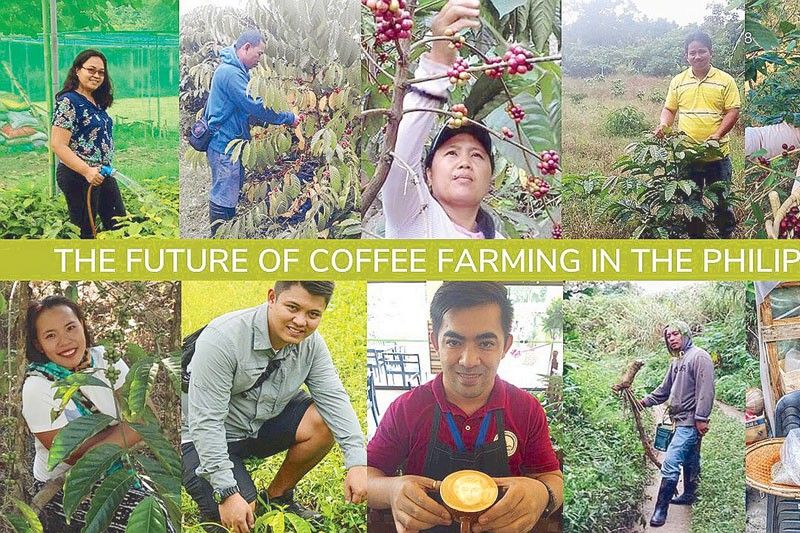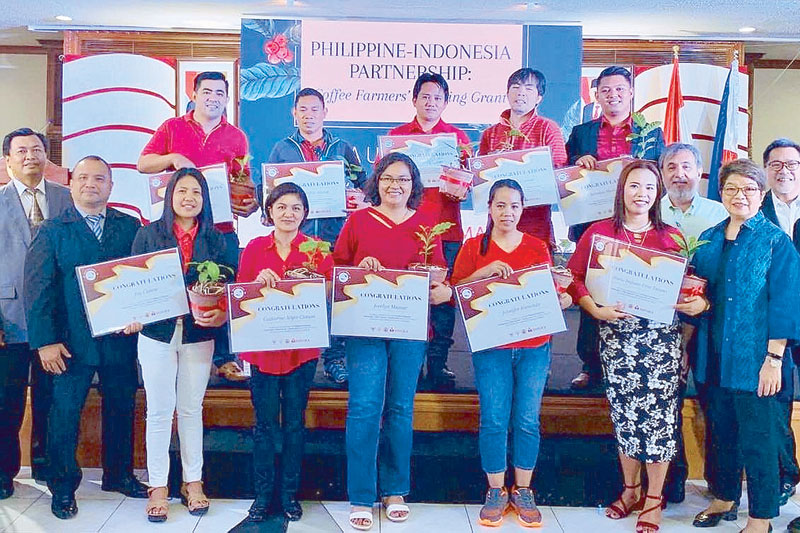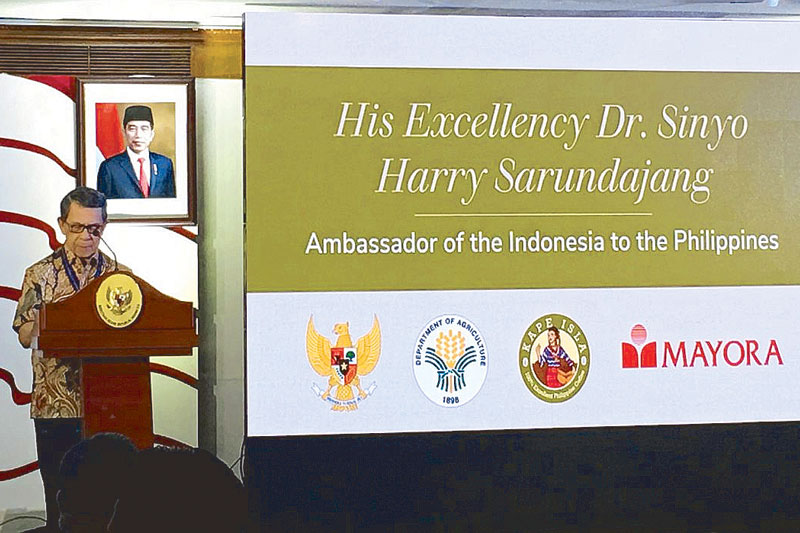Youth for Philippine coffee

The youth is now also “woke” over another part of the coffee chain – farming. Is that not a good development since most of our coffee farmers are now getting on in years? To keep the coffee industry alive and to keep planting coffee for future generations, the answer is the youth.
The 17-year-old Philippine Coffee Board Inc. (PCBI), a non-stock, non-profit organization dedicated to promotion of the Philippine coffee industry, recently inked a deal with PT Mayora Indah Tbk to train young farmers in primary processing, the way world-famous Indonesian coffee is processed. The program called “Philippine-Indonesia Partnership: Coffee Farmers’ Training Grant” involves nurturing 10 young coffee farmers to be able to learn and then teach what they have learned to their community.
The farmers were selected through a vetting process by the PCBI Board of Directors who chose from a pool of nominees by the Department of Trade and Industry (DTI), the Philippine Commission on Women (PCW), the Department of Agriculture (DA) and the Agricultural Cooperative Development International and Volunteers in Overseas Cooperative Assistance (ACDI/VOCA). The PCBI Board of Directors took into consideration the age, gender and origin of the farmers, and the diversity of their backgrounds – some have been farming with their families since they were kids and some have only started farming recently due to their passion for coffee.

The Recipients of the Training Grant
“I love to teach about coffee,” says Jocelyn Mamar of Davao del Sur, who was chosen to represent Mindanao. Jocelyn, along with Maria Teofanie Criss Tutanes from Sultan Kudarat and Kadafhie Butted from Bukidnon, will make Mindanao’s youth get involved in farming coffee when they get back from a two-week training in East Java.
From the Visayas, Christian Gomay of Bago and Mary Joy Cañete of Murcia, both from Negros Occidental, will be spreading the word among their fellow youth and colleagues in the sugartown-turned-coffee areas.
Luzon has its share of trainees from Benguet, Mountain Province and Nueva Vizcaya, namely Allan Canam, Jennifer Rimando and Jonecy Tomilas. These farmers grow the Arabica variety on elevations higher than 1,300 meters above sea level. But just the same, processing requires training and expertise which they will impart to their cooperative or association members.
DA’s Undersecretary for Operations Ariel Cayanan along with Undersecretary for High Value Crops and Rural Credit Evelyn Laviña were present at the recent launch of the program at the Indonesian embassy in Manila. Usec Laviña expressed the DA’s full support for the project and will conduct a levelling training before the group heads to Indonesia.
“This is what we need – engage the youth to be trainors when they return,” she says, and for a strategic planning to be done with the participants so they themselves can author a module for learning when they come back.

All prospects look good as the younger generation do not just drink more coffee but also think of how coffee supply can be sustainable through farming the proper way.
“We support the younger generation of farmers who is our future,” says Bill Luz, founding trustee of the PCBI. He is also part of the Philippine Disaster Resilience Foundation (PDRF). The PDRF and PCBI will be starting a coffee demo farm in Mindanao State University (MSU) in Marawi City. The DA will also lend a hand to the State University to make sure the demo farm and future nurseries for good quality coffee seedlings will be available to farmers in the Marawi and Lanao del Sur highlands.
“I know Marawi and all of Lanao can soon become a major coffee producing area,” says PCBI president and co-chair Pacita Juan, who recently went to Marawi with fellow PCBI director Alejandro Mojica to engage the women and the youth in coffee production.
“This is our thrust now in PCBI, to engage the younger generation to love coffee farming and to make farming sexy again,” continues Luz.
The average age of coffee farmers will soon be in the low 40s or 50s if the age of the grant’s trainees is an indication, with most of the trainees between 27 to 37 years old. That is a legacy the PCBI wishes to leave, to make the coffee farmers younger and the coffee drinkers young, too.
They say coffee keeps you young. Making the industry a youth-filled and youth-driven one is the answer to its sustainability and hope for export of quality coffee in the near future. This way, the Philippines may just be a major producer once again.
PCBI bets its marbles on the youth in all parts of the country to keep our coffee industry alive and well. With forward-thinking companies like PT Mayora Indah Tbk which will soon put up a plant in the Philippines because of its growing business in the country, and the support of government through the DA, the dream to make the industry young and vibrant again is a dream already being fulfilled.
- Latest
- Trending

















